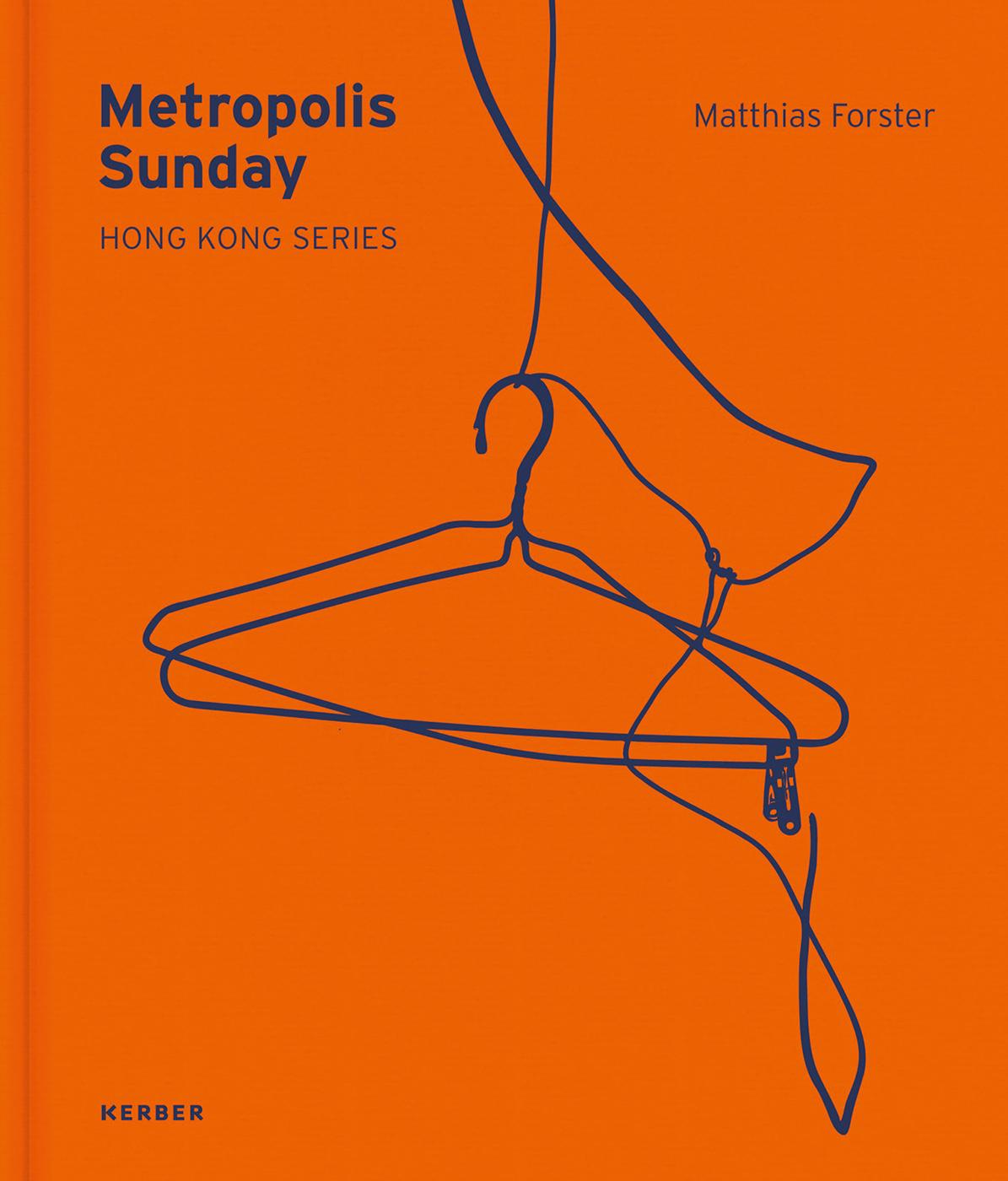
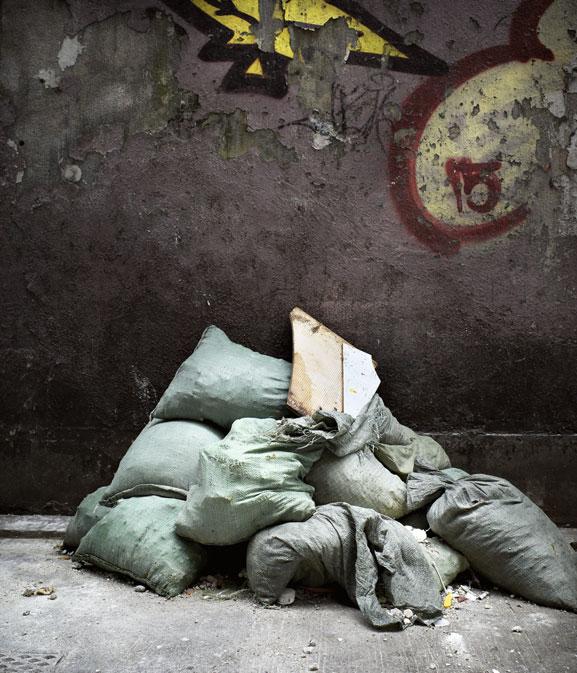
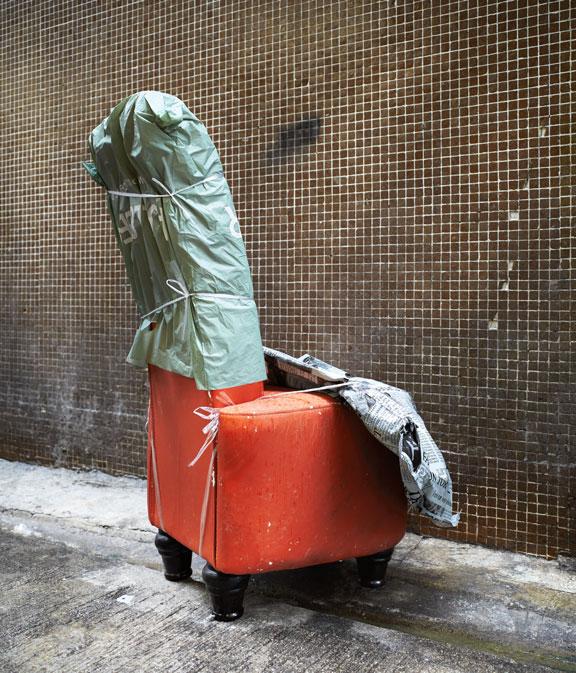
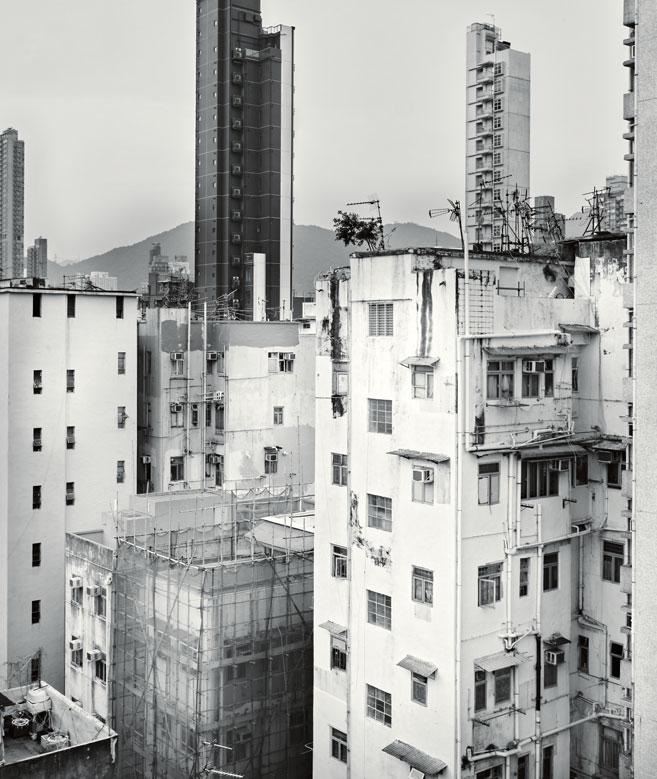
Morning
The unmistakable sound of that creaky lock, its iron door opening. At 9.30 sharp the woman descends with the man, both are well into their seventies.
They unload fifteen floors of residential trash bins excreted from the tower, save what’s sellable, dispose of the rest.
Two large straw baskets on an industrial metal trolley, two folding chairs stored between the wall and the countless water pipes climbing up on the building’s back, all the way into whose home. And an old battery powered radio.
I am the uninvited witness of this elaborately performed daily rite, their undisclosed bond meticulously expressed.
On their morning chirping sound I have relied for more than one decade. I must come out between 9.38 and 9.48 to feel the warmth of light, it is the only time our back lane is blessed with direct sun.
The celestial body’s alignment lights and warms us three in a brief, precious, theatrical instant that is already lost in the folds of this city’s unconscious.
Fleeting instants turn permanent in front of Matthias’s lens. Traces of humanity
evoke glimpses of his intended subjects’ lifetimes and summon memories from the viewers’ senses, tricking us into thinking those instants were left behind by our own existence. This angle masterfully makes the strange familiar, and the familiar strange in a never ending loop.
Without uttering a word, through the years they have offered me every object I have shown interest in, their generous basket materialising unpredictable leftover treasures from the innumerable floors above. The couple asks for nothing in return, ever, prompting me to do the same.
A gift based, wordless kinship chants of a generation of selfless survivors of flawless effectiveness. Instants predating our obstinacy with affirming constructed identities, silently grounding our desire for individuality indefinitely.
Their passage is otherwise made invisible throughout the following twenty-four hours, symptom of a city that has not chosen the human factor as its ethos.
Scouting humanity as it thrives in the shadow of modernity, Matthias offers the mundane, he is a flâneur in search of those elemental materials that make up history.

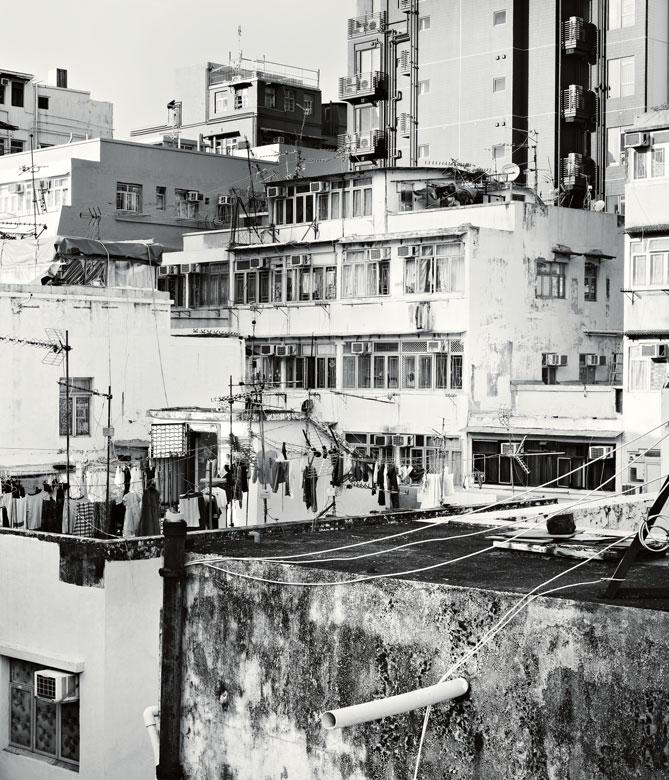
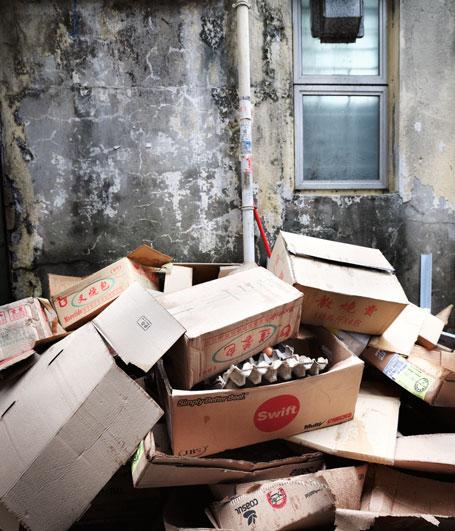
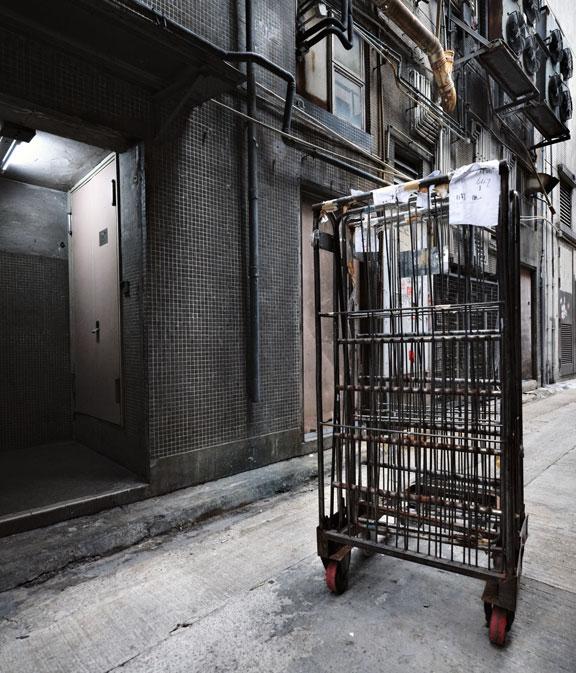
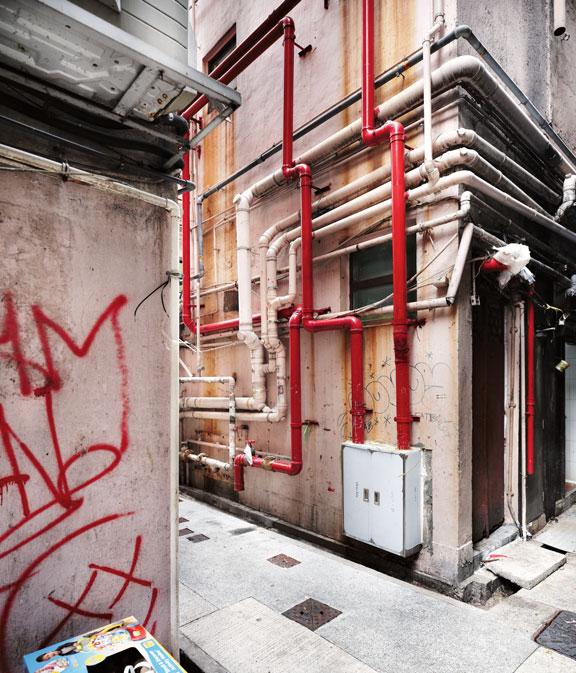
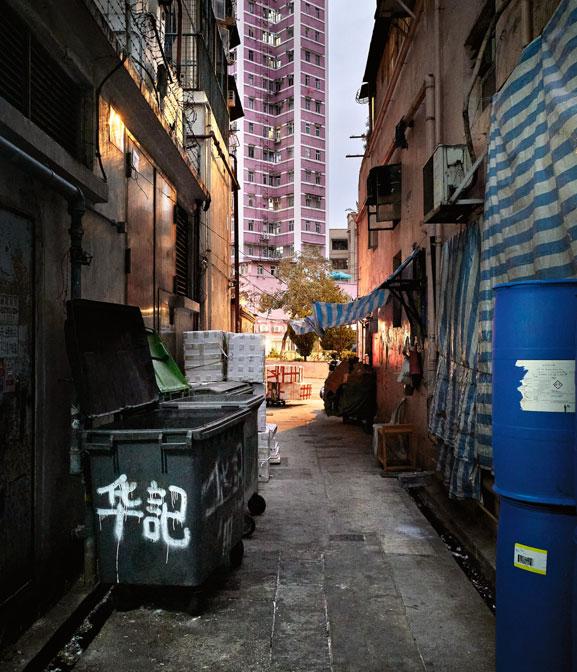
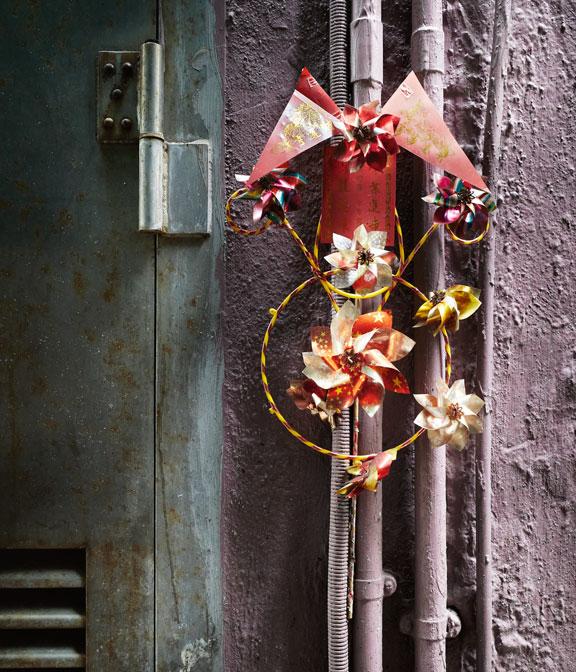
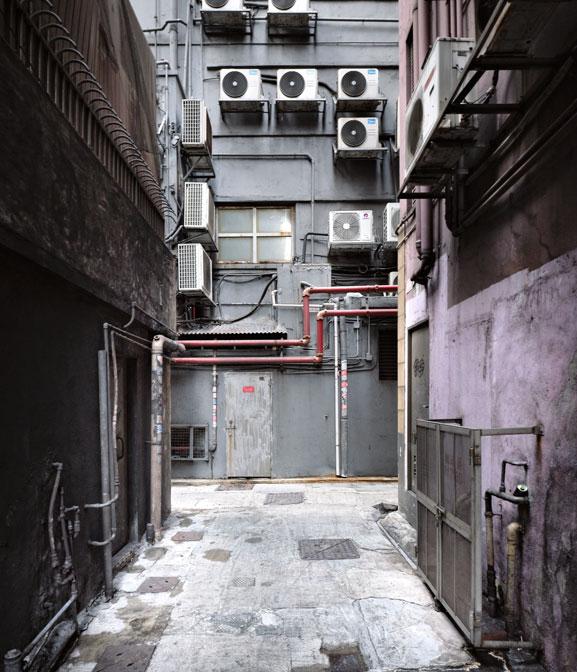
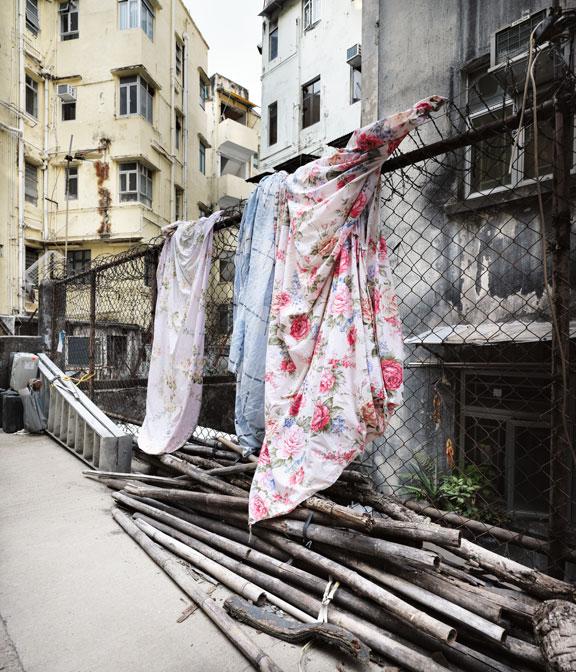
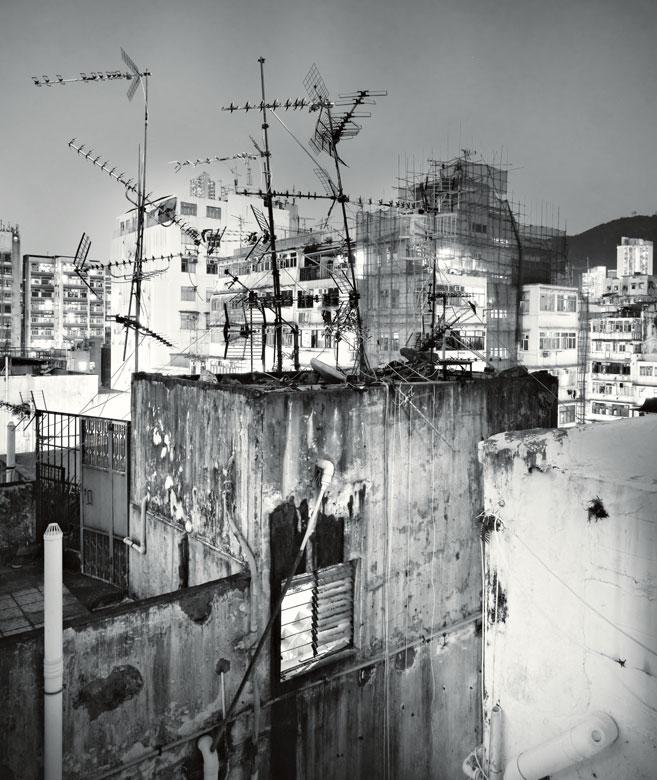
Night
Embraced by steep, unevenly lit concrete walls on all sides, the alley does not sip moonlight.
At night, strangers uncomfortably share humidity in the dark. Some look around furtively while coming home, some grab their late privacy for a fleeting tenderness.
Mr Chan’s headlamp nervously sorts the cartons he has piled up today, soaking them in water overnight, so Mohammad’s scale will weigh them triple when they are all dried up tomorrow.
With time, memories solidify into archetypical traces of the passage of our loved ones. Deep in our subconscious rests the pre-rational manifestation of our existence.
The most powerful photographs do not display motifs superficially, they summon them from within ourselves. Matthias captures the timeless by capturing our time,
subtracting what we are not, resulting in an image of who we truly are.
The feeble flickering of gaunt lightbulbs seldom scratches the deaf darkness, shining through this multi-species, multi-material anthropocene of sleepwalking.
For fifteen million years roaches have been hunted by bats, cities fail to chase them away, in its dark cracks they thrive, our presence only momentarily disturbing their feast.
Matthias’ timeless instants of aesthetic purity humble and ignite the slick, soulless landscapes of urban banality, his minimalist approach pulling the veil off of urban dwelling.
Alchemical transformation weds Daoist wisdom in the early-hour mandalas of Sham Shui Po’s back alleys: we are gone before the street cleaning truck wipes our traces away in the morning.
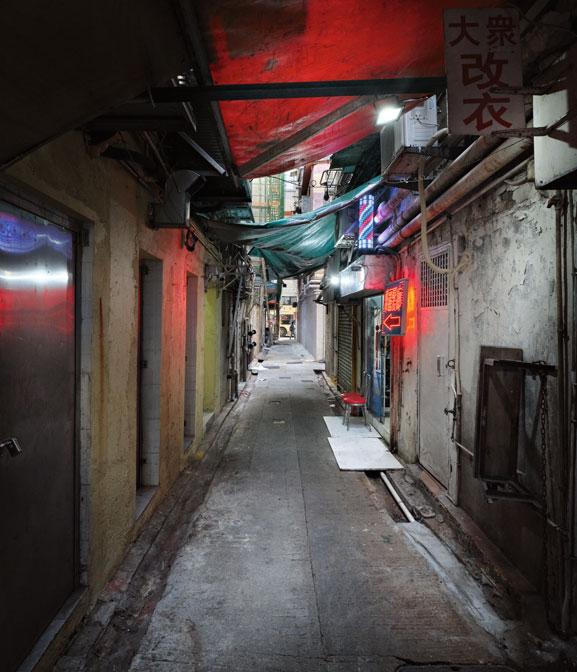
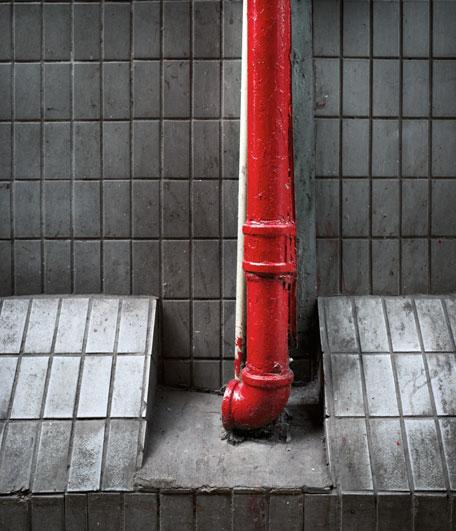
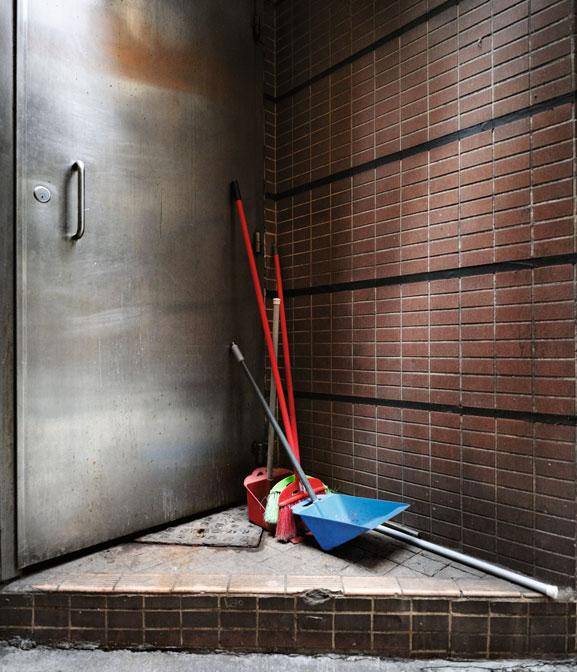
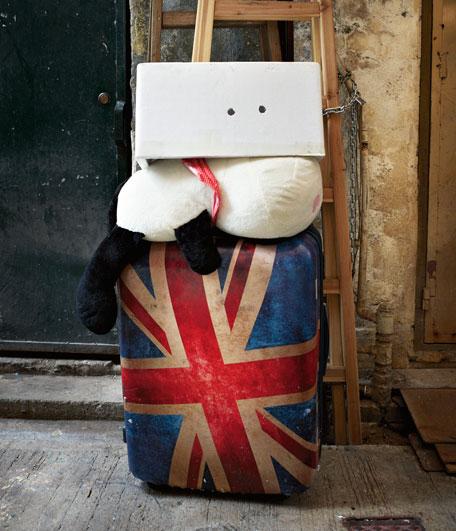
Matthias Forster
Matthias Forster is interested in experimenting and moving between the different fields of photography and fine art. His visual language is characterised by clarity, originality and playfulness in the use of light, form and colour. As a curious person, he does not follow a clear concept, but rather his intuition. In his work he is particularly interested in the traces and legacies of mankind and the tension between chaos and order. With his keen observations, he visualises the everyday that is often overlooked.
After studying architecture, many years of experience in an established architecture firm and various travels, he completed his photography studies at the MAZ. Institut für Journalismus und Kommunikation in Lucerne in 2018 and has since been working as a freelance artist with a focus on independent photographic projects.
Acknowledgements
After numerous visits and great enthusiasm for the metropolis of Hong Kong, the photos for the book were taken in 2019, 2020 and 2024.
In making the first selection of images, Alexa Becker laid the groundwork and contributed considerably to setting the overall epic tone of my pictorial language. A big thank you to the passionate book designer Hannah Feldmeier, who skilfully brought the book to its final, fitting form. Thanks to Uli Sigg, I was able to win Alberto Gerosa as the author of the text for this book. Alberto was immediately enthusiastic about the work, and I was able to meet him in person in Hong Kong in 2024. Alberto has lived in Sham Shui Po and since 2013 he has been transforming an alley into an open air art museum (Thy Lane Museum) around the clock and is very familiar with the subject. Many thanks to Alberto, who created a perfect written counterpart to my visual language. Thanks to copyeditor Anna E. Wilkens, every sentence and comma is just right. Jan Scheffler of professional prints made sure the images had the right colours and the right look for printing. DZA Druckerei ensured the beautiful print result. Thanks to Kerber Verlag, my publisher, I was able to make the book and design it the way I wanted. I would also like to thank all the many supporters not mentioned by name for their help.
Last but not least, I would like to thank my parents and my friends, especially Mathias, Michael, Peter, Boris, and my wife Luzia, without whose constant support my work would not be what it is.
